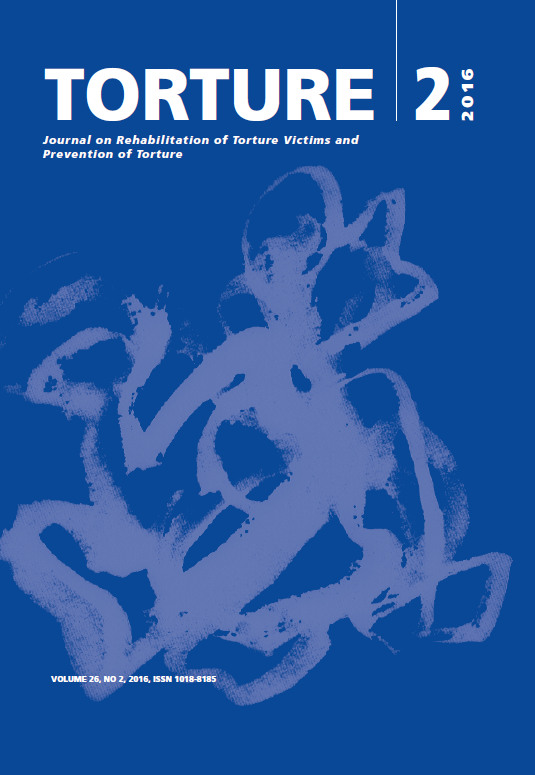Anal Examinations in Cases of Alleged Homosexuality
DOI:
https://doi.org/10.7146/torture.v26i2.108205Keywords:
anal examination, ill-treatment, homosexual evaluation, medico-legal statement, forensic evidence, forced anal examinationsAbstract
Anal examinations are forcibly conducted in many countries where consensual anal intercourse is considered a criminal act. They are conducted almost exclusively on males in an effort to “prove” that they are “homosexuals” despite the fact that anal intercourse is not a necessary determinant of “homosexual activity.”
Forcibly conducted anal examinations are usually initiated at the request of law enforcement officials, the prosecutor, or the court and conducted in the absence of informed consent or in circumstances where individuals are not capable of giving genuine informed consent or where refusal to give consent would be interpreted as self-incrimination. This may be presumed to be the case when examinations are conducted on individuals in detention, subsequent to allegations of criminalised sexual acts by the authorities.
The purpose of this medico-legal statement is to provide legal experts, adjudicators, health care professionals, and policymakers, among others, with an understanding of: 1) the validity of forcibly conducted anal examinations as medical and scientific evidence of consensual anal intercourse; 2) the likely physical and psychological consequences of forcibly conducted anal examinations; and 3) whether, based on these effects, forcibly conducted anal examination constitutes cruel, inhuman, or degrading treatment or torture.
Downloads
Published
How to Cite
Issue
Section
License
We accept that some authors (e.g. government employees in some countries) are unable to transfer copyright. The Creative Commons Licence Attribution-NonCommercial-NoDerivatives 4.0 International (CC BY-NC-ND 4.0) covers both the Torture Journal and the IRCT web site. The publisher will not put any limitation on the personal freedom of the author to use material contained in the paper in other works which may be published, provided that acknowledgement is made to the original place of publication.


